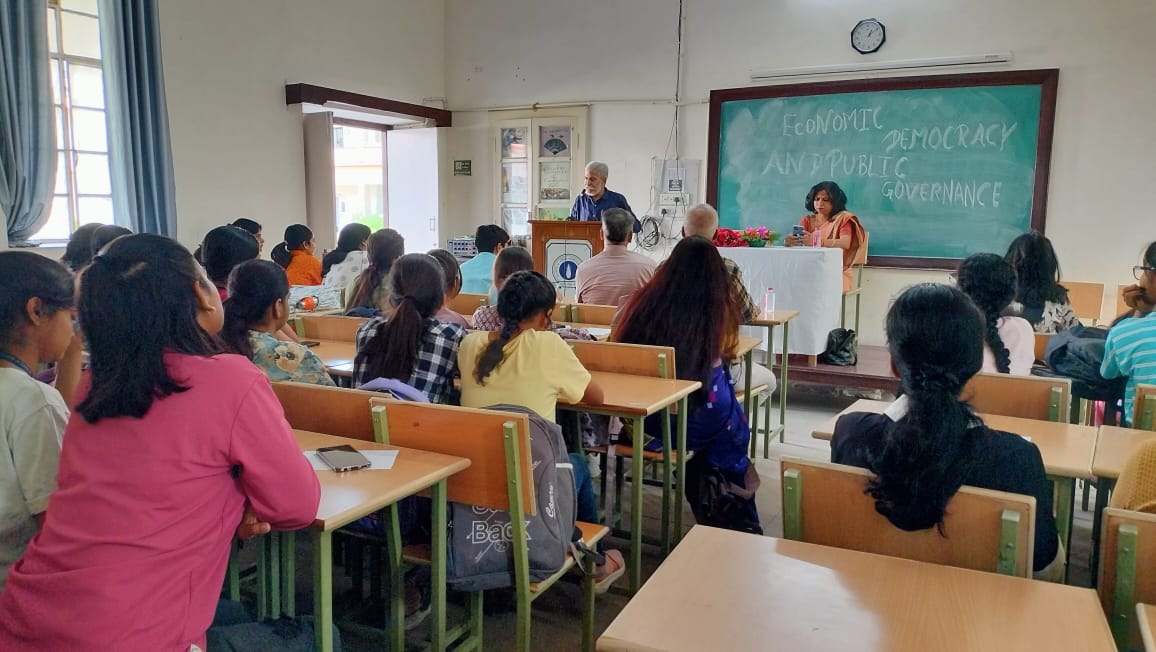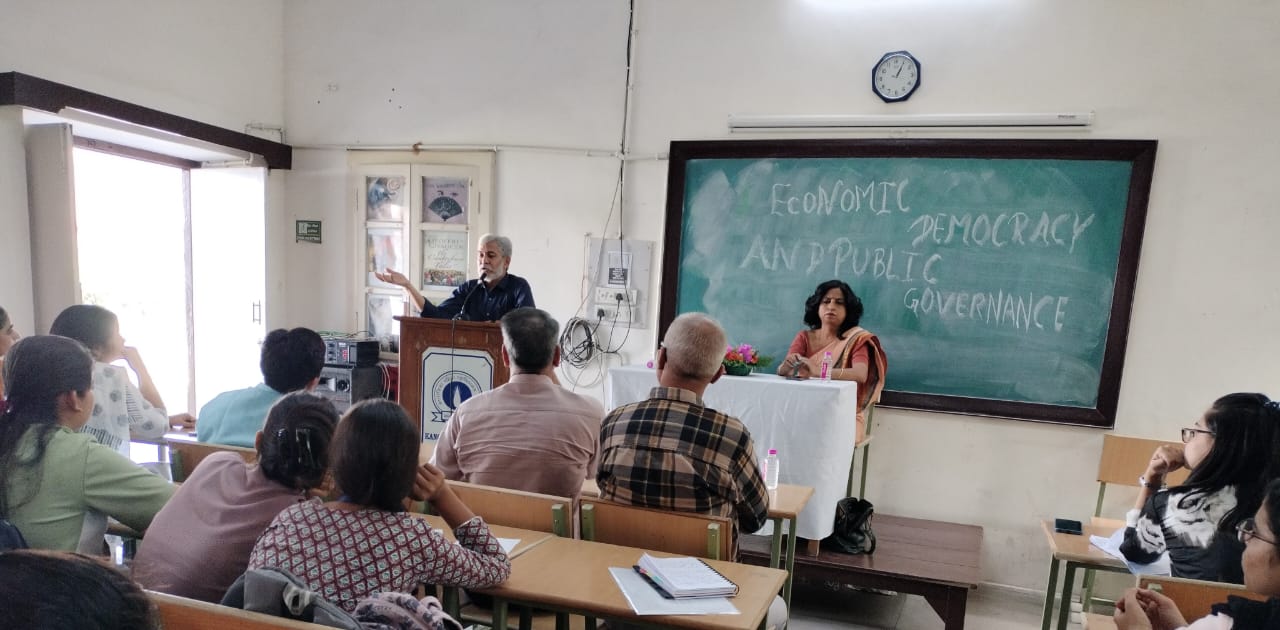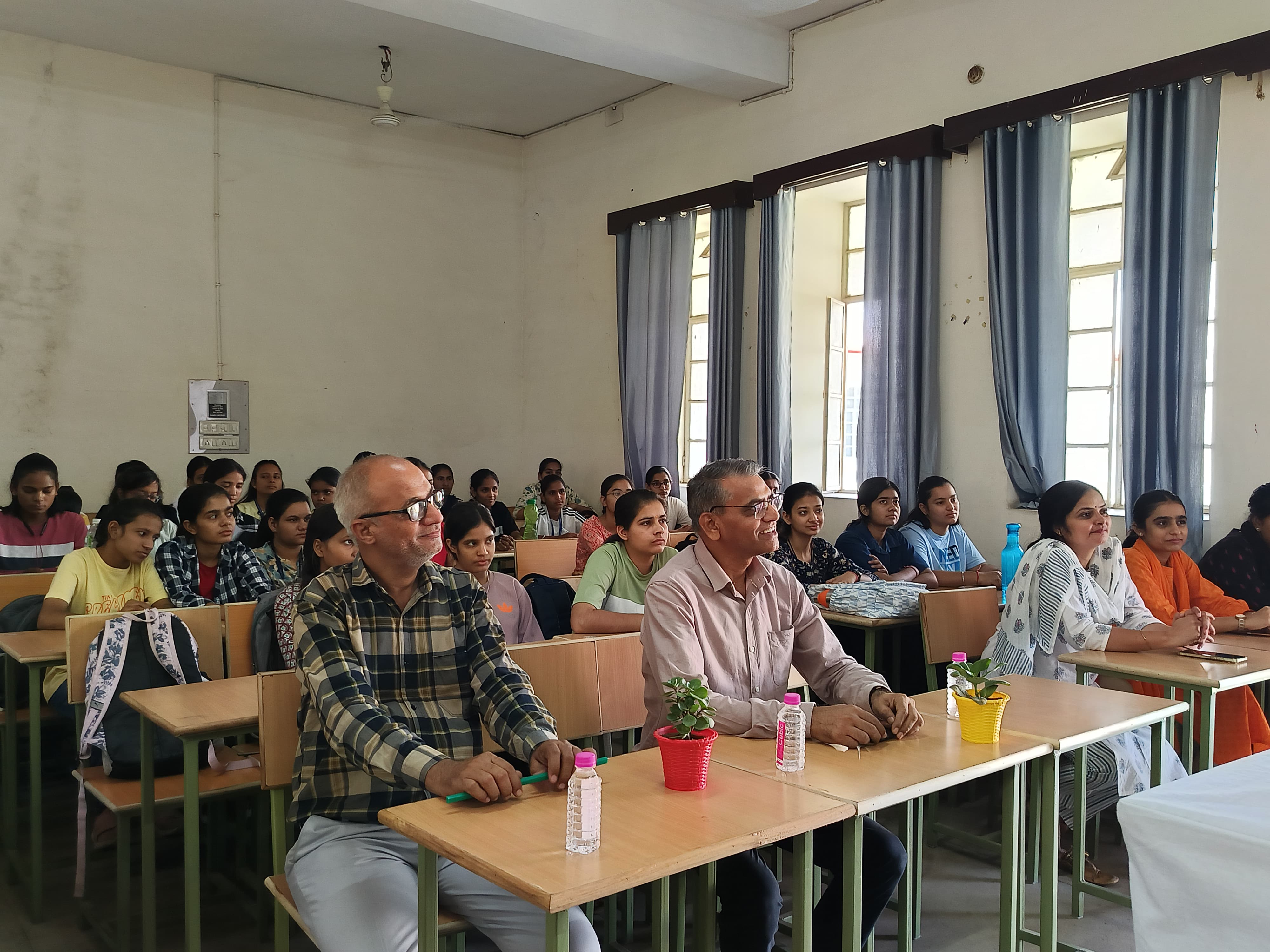कानोड़िया पीजी महिला महाविद्यालय जयपुर के लोक प्रशासन विभाग द्वारा 16 अक्टूबर 2024 को “इकोनॉमिक डेमोक्रेसी एंड पब्लिक गवर्नेंस, ए न्यू पैराडाईम फॉर इन्क्लूसिव पॉलिसी “विषय पर विशिष्ट व्याख्यान का आयोजन किया गया। कार्यक्रम के मुख्य वक्ता आर्थिक नीतियों के विशेषज्ञ , प्राउट कार्यकर्ता तथा पिछले तीस वर्षों से विश्व के विभिन्न देशों में प्राउट संस्था के माध्यम से आर्थिक तंत्र के बारे में जागरूकता वाले श्री राजेश सिंह रहे। कार्यक्रम के मुख्य अतिथि का स्वागत डॉ. मनीषा माथुर, विभागाध्यक्ष,लोक प्रशासन विभाग द्वारा किया गया। श्री राजेश सिंह ने अपने उद्बोधन में छात्राओं को आर्थिक प्रजातंत्र और राजनीतिक प्रजातंत्र के मध्य अन्तर और बारीकियों के विषय में अवगत कराया तथा देश के आर्थिक तंत्र को कैसे मजबूत बनाया जाए इसके बारे में जानकारी प्रदान की। व्याख्यान में लगभग 60 छात्राओं ने भाग लिया।
कार्यक्रम के अंत में डॉ. आशु सिन्हा सहायक आचार्य,लोक प्रशासन विभाग ने धन्यवाद ज्ञापित किया।
सादर प्रकाशनार्थ The department of Public Administration, Kanoria PG Mahila Mahavidyalaya, Jaipur, organized a special lecture on “Economic Democracy and Public Governance: A New Paradigm for Inclusive Policy Making” on October 16, 2024. Mr. Rajesh Singh, a distinguished economic analyst, was invited as the guest speaker for the event. He was welcomed by Dr. Manisha Mathur, Vice Principal and Head of the Department of Public Administration. During the lecture, Mr. Singh shared insights into his Progressive Utilization Theory (PROUT), a framework he has been developing over the past 30 years. He also emphasized the need for a new economic model to promote sustainable prosperity. The session fostered an interactive discussion between Mr. Singh and the students on the concepts of economic democracy and political democracy, with the speaker providing detailed insights into both. A total of 60 students participated in the event. Dr. Ashu Sinha, Assistant Professor in the Department of Public Administration, concluded the session with a vote of thanks. The lecture not only expanded students’ knowledge but also encouraged them to explore new possibilities i n economic analysis and mod ling.
कार्यक्रम के अंत में डॉ. आशु सिन्हा सहायक आचार्य,लोक प्रशासन विभाग ने धन्यवाद ज्ञापित किया।
सादर प्रकाशनार्थ The department of Public Administration, Kanoria PG Mahila Mahavidyalaya, Jaipur, organized a special lecture on “Economic Democracy and Public Governance: A New Paradigm for Inclusive Policy Making” on October 16, 2024. Mr. Rajesh Singh, a distinguished economic analyst, was invited as the guest speaker for the event. He was welcomed by Dr. Manisha Mathur, Vice Principal and Head of the Department of Public Administration. During the lecture, Mr. Singh shared insights into his Progressive Utilization Theory (PROUT), a framework he has been developing over the past 30 years. He also emphasized the need for a new economic model to promote sustainable prosperity. The session fostered an interactive discussion between Mr. Singh and the students on the concepts of economic democracy and political democracy, with the speaker providing detailed insights into both. A total of 60 students participated in the event. Dr. Ashu Sinha, Assistant Professor in the Department of Public Administration, concluded the session with a vote of thanks. The lecture not only expanded students’ knowledge but also encouraged them to explore new possibilities i n economic analysis and mod ling.



